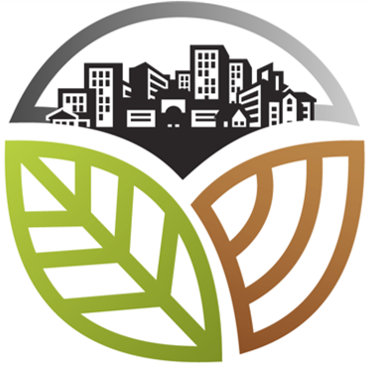Centre d'Ecologie Fonctionnelle et Evolutive - Université Paul Valéry Montpellier 3

The CEFE is a joint research unit located in Montpellier under the supervision of the Centre National de la Recherche Scientifique (CNRS), the University of Montpellier, the Institut de Recherche pour le Développement (IRD), the Ecole Pratique des Hautes Etudes (EPHE), the Université Paul-Valéry Montpellier 3 (UPVM3), the Institut National de Recherche pour l’Agriculture, l’Alimentation et l’Environnement (INRAE) and the Institut Agro Montpellier. Its research activities are focused on the major concerns of society: biodiversity, global change and sustainable development. The objective is to establish scenarios for the evolution of ecological systems and strategies for their conservation, restoration or rehabilitation.
Within this unit, it is the Ecology of Anthropized Systems (ESA) team, based on the campus of the University Paul-Valéry Montpellier 3, which carries the BISES project. The ESA team conducts research on the functioning of terrestrial ecosystems along gradients of anthropization, from protected environments to the “hybrid nature” of the most artificial territories, with soil fauna as the main biological model. The interactions between human societies and ecological systems are at the heart of the team’s reflection (perception, regulation, knowledge…).
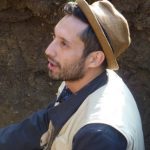
Alan Vergnes - Project leader - Senior Lecturer
I am aiming at a better understanding of environmental changes effect on communities, populations and traits of soil invertebrates, at different scales – from the landscape scale to the local scale.
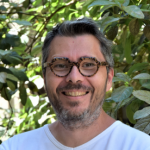
Jérôme Cortet - Professor
My research is focused on soil community ecology. I am studying more particularly the dynamics of communities of springtails under anthropic constraints (agricultural and urban environments). I am aming at develop tools for bioindication of the biological quality of soils.
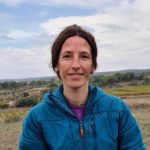
Sandra Barantal - postdoc
I am interested in the distribution of soil macrofauna communities and the effects of soil biodiversity on ecosystem processes. I am also the scientific coordinator of the citizen science program QUBS.
Laboratoire Sols et Environnement

The Soil and Environment Laboratory (LSE) is a joint research unit based in Nancy (54) under the supervision of the University of Lorraine and INRAE. The scientific strategy of the LSE aims to answer the questions raised by the major anthropic pressures on soils, leading to their increasing artificialization. This concerns major environmental issues such as the preservation of biodiversity, the supply of biomass, or the restoration of the quality of environments often degraded by (multi)contamination. The result is the necessary development of pedology of highly anthropized environments – methods and tools for diagnosing the state of soils based on knowledge of their functioning and evolution – and of agronomy of highly anthropized environments – optimization of cropping systems based on better knowledge of interactions between soils, plants and soil microflora and fauna. The LSE’s work also contributes to the development of tools for taking soils into account in development strategies, the objective being to have functional soils capable of providing ecosystem services.
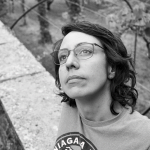
Apolline Auclerc - Senior Lecturer
As a soil ecologist, my research focuses on the study of taxonomic diversity (i.e. field sampling, identification; development of participatory science tools) and the functional roles played by meso and macro soil invertebrates (i.e. in situ and laboratory measurements; functional trait approaches) in highly anthropized environments (i.e. industrial wastelands, mining sites, urban environments).
I have developed a pioneering citizen science program soil fauna in gardens :
apolline.auclerc@univ-lorraine.fr

Christophe Schwartz - Professor, Head of the LSE lab
My research work is focusing on the study of the state, functioning, evolution and restoration of the vegetation support function of highly anthropized soils. I am aiming at providing innovative solutions in soil engineering and at a better inclusion of soils in development strategies, particularly in the context of urban agriculture.
christophe.schwartz@univ-lorraine.fr
Unité de recherche Agroécologie Dijon

The research developed aims to progress in our knowledge of biotic interactions (particularly plant-plant and plant-microorganisms) within agrosystems in order to design innovative cropping systems that respect the environment. Thus, the research developed responds to two major challenges which are to :
- To analyze, understand and act on interactions and regulations within communities at different spatial and temporal scales;
- To propose innovative cropping systems that ensure quality agricultural production, in sufficient quantity, while respecting the quality of the environment.
This research is conducted at different levels of integration (from the molecule to the community) and spatial and temporal scales (microcosm, plot, landscape, crop cycle, rotation, etc.). They implement complementary expertise in the fields of agronomy, ecology, biology, physiology and ecophysiology, genetics, microbiology, modeling.

Lionel Ranjard - Research director
My research aims to better define and understand the dynamics and assembly of land-based microbial communities in response to environmental perturbations. In this context, I have participated in the development of numerous molecular ecology tools allowing the characterization of community density and diversity. I participated in the creation of the GenoSol platform, of which I am the scientific director.
lionel.ranjard@inrae.fr
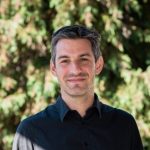
Pierre-Alain Maron - Research Director
Specialist in microbial ecology, my work focuses on the role of microbial community diversity in soil functioning. I have coordinated many collaborative projects in this field and demonstrated in particular the importance of microbial diversity for essential functions such as organic matter decomposition, nutrient recycling and plant productivity.
pierre-alain.maron@inrae.fr
L'institut Agro Rennes-Angers

The school’s academic and applied research aims to provide innovative responses to the major scientific, economic and societal challenges of the 21st century: sustainability of resources and territories, energy, environment, health, global food security, etc.
The scientific policy of the Institut Agro Rennes-Angers favors an integrative multidisciplinary approach to these themes, at levels of organization ranging from the cell to the population and at scales ranging from the tissue to the territory.
The structuring of the school’s activities into joint research units (UMR) has made it possible to integrate the school’s research into a much broader scientific community. The school’s scientific staff are thus associated with researchers and teacher-researchers from other UMR supervisory bodies and they benefit from access to a network of technological platforms, shared experimental and technological facilities, for the benefit of improved scientific production in terms of quality and quantity, reflecting the school’s integration in international networks.
My main research activities are related to horticultural and urban agronomy and they have as object of study the built soils in order to analyze their physical fertility. My research answers scientific questions related to the physical, mechanical and biological properties of constructed soils and corresponds to a progression in the study of the various functions of constructed soils for a finalized research.
L'Institut de L'Ecologie et des Sciences de L' Environnement Paris (iEES)

iEES Paris analyzes and models the organization, functioning and evolution of ecological and environmental systems. It has a wide range of expertise in:
♦ population dynamics and biodiversity studies,
♦ community and ecosystem ecology,
♦ microbial ecology,
♦ ecology of social organisms,
♦ evolutionary ecology and environmental adaptation processes,
♦ ecology and mechanisms of communication,
♦ soil and water sciences.
The objectives of the institute are focused on:
Analyzing and modeling the organization, functioning, and evolution of ecological systems for predictive ecology and environmental science.
Contribution to innovation in sustainable management of biodiversity, ecosystems and biological resources and to the development of strategies for adaptation to global change.
Training in recent advances in ecology, environmental sciences and ecological engineering.
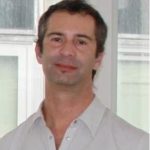
Jean Christophe Lata - Professor
jean-christophe.lata@courriel.upmc.fr
l'Observatoire des sciences de l'univers (OSU) Ecce Terra

The Observatoire des sciences de l’Univers (OSU) ECCE TERRA was created in 2010. It is a component under the dual supervision of the CNRS National Institute for the Sciences of the Universe (INSU) and Sorbonne-university (formerly UPMC). Its institutional partners are: IRD, IRSTEA, MNHN, and ENS.
The OSU has missions of observation, research, training and dissemination of knowledge in the fields of “Earth Sciences, Climate and Ecology” and an opening on health problems (epidemiology and respiratory diseases).
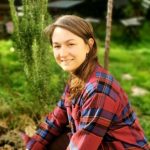
Laure Turcati - research engineer
laure.turcati@sorbonne-universite.fr
After a PhD in ecology, I focused my expertise in the field of citizen sciences. My current missions are :
– the coordination of a participatory observatory of the urban environment, PartiCitaE,
– the support to researchers of the Institute of Environmental Transition of Sorbonne University wishing to implement a citizen approach in their research
– the animation of the network of citizen science project leaders at Sorbonne University.
Le Centre d'Écologie et des Sciences de la Conservation (CESCO

CESCO develops research for the conservation of biodiversity, by mobilizing approaches of ecology and evolution as well as interfaces with social sciences (political sciences, management sciences and psychology).

Anne Dozières - Head of Vigie Nature
anne.dozieres@mnhn.fr
Anne Dozières is the director of Vigie Nature at the Muséum national d’Histoire naturelle. She began her career as an ecologist tracking red squirrels as part of a thesis defended in 2012. She then turned to participatory science, passionate about issues of learning and citizen participation. She divides her time between the management of the Vigie Nature team and the various observatories. She was part of the team that developed QUBS.
Vigie-Nature is a participatory science program that aims to study the future of biodiversity in the face of global change on a French scale, bringing together some fifteen programs. Founded by the Muséum national d’Histoire naturelle, Vigie-Nature is co-sponsored by the MNHN and the Office Français de la Biodiversité and is coordinated in collaboration with associations.
Unité Méthodes et Outils pour les Sciences participatives (MOSAIC)

Mosaic (“methods and tools for participatory sciences”) is a service unit of the Muséum national d’Histoire naturelle and Sorbonne University created to support any private or public actor wishing to mobilize participatory sciences in its project.
The services offered by Mosaic range from the co-design of the project (or its conceptualization for innovative projects) to the creation of participation and animation sites. It includes data hosting and mutualized maintenance.
Mosaic has developed numerous participation sites with academic research actors in a large number of fields: ecology and environment, medicine, human and social sciences… It also provides services for public or private actors (local authorities, companies, associations) who wish to involve their users, staff or members in a common reflection based on the methods of co-production of participatory science data.
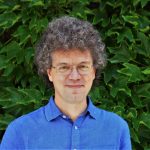
Romain Julliard - Professor
romain.julliard@mnhn.fr
My research focuses on the macro-ecology of communities in the context of global change and the development of biodiversity indicators. This know-how in characterizing so-called ordinary biodiversity leads me to be interested in questions such as rethinking compensation measures, the true place of biodiversity in ecological services or, ultimately, rebuilding a social contract that takes into account our dependence on nature.
I have been the linchpin of Vigie-Nature since my early days, then of 65 Million Observers, and I am currently in charge of the MOSAIC unit.
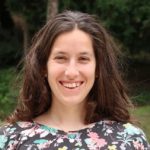
Alicia Mansilla-Sanchez - Product owner
alicia.mansilla-sanchez@mnhn.fr
After a few years in biomedical research, I pursued my career in EdTech and am interested in participatory methods of data collection. At Mosaic, I am the product owner: the communication center between the project owners and the technical team; I manage the development of the QUBS platform and ensure its smooth running!
Plante et Cité

Specialized in green spaces and landscapes, Plante & Cité is a national organization for studies and experiments. This technical center ensures the transfer of scientific knowledge to professionals of green spaces, companies and local authorities. It is based in Angers and was created in 2006.
Its missions are to: (i) organizing study and experimentation programs on subjects decided in common and which correspond to the expectations of green space managers, (ii) leading experiments conducted in a network with local authorities, partner companies and technical and scientific institutes and (iii) carrying out technical monitoring, transfer and mutualization of scientific and technical knowledge to member local authorities and companies. Plante & Cité’s research themes revolve around the major challenges of urban ecosystems: zero net artificialization, rainwater management, zero phyto, adaptation to climate change, living environment and health, ecological management or heritage and landscape.
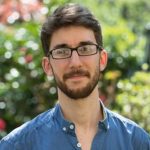
Robin Dagois
robin.dagois@plante-et-cite.fr
I coordinate the theme of urban soils and choice of plant palettes in cities at Plante & Cité where I have been working as a Project Manager since 2018. I participate in the construction and animation of research and study programs to develop a better knowledge of urban soils and work towards resilient alternatives for taking into account the soil in the vegetation of cities. In contact with professionals in charge of the design and management of green spaces, I pass on the views of local authorities, landscape architects and design offices on how to take into account soil biodiversity in cities.
